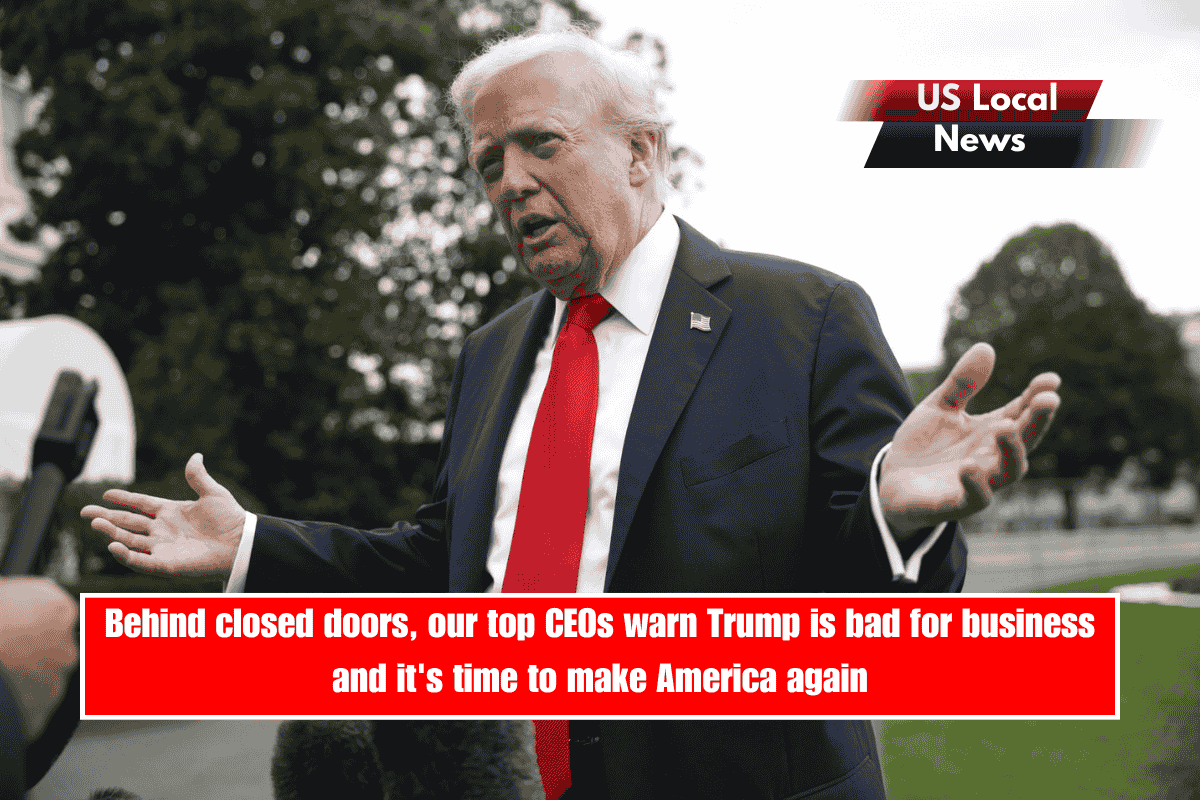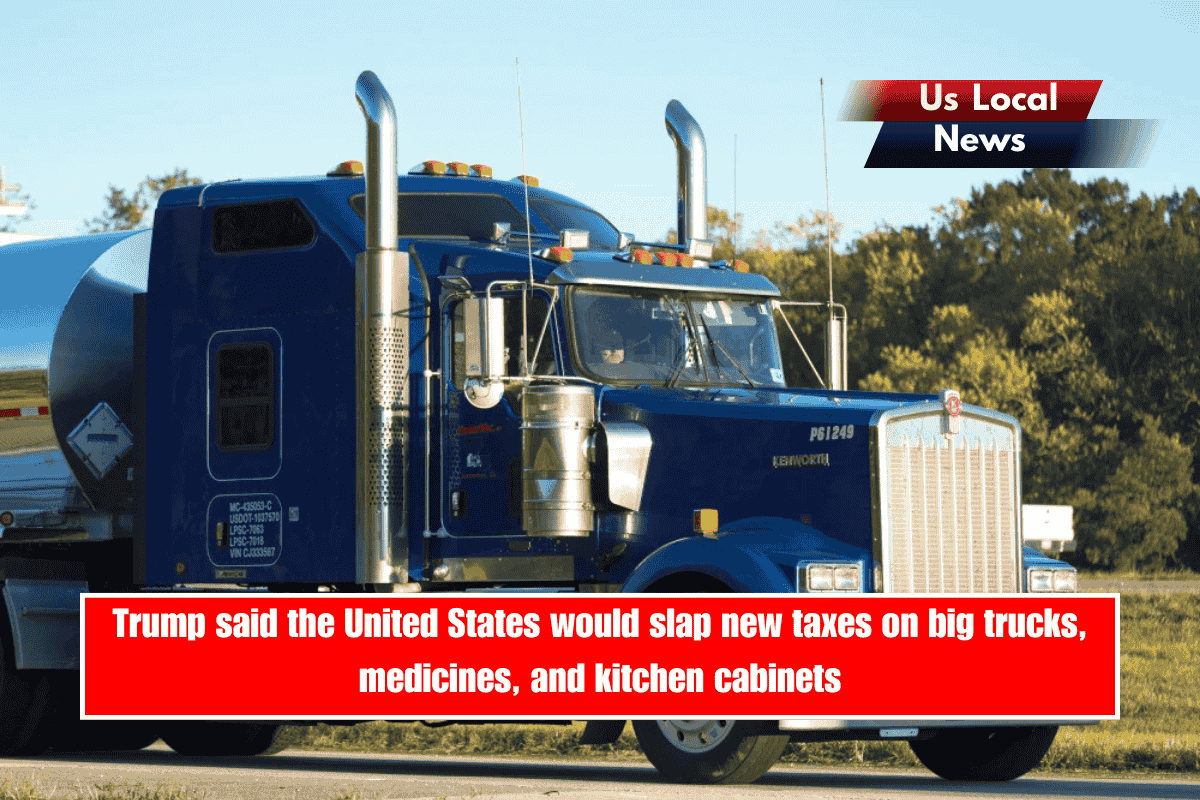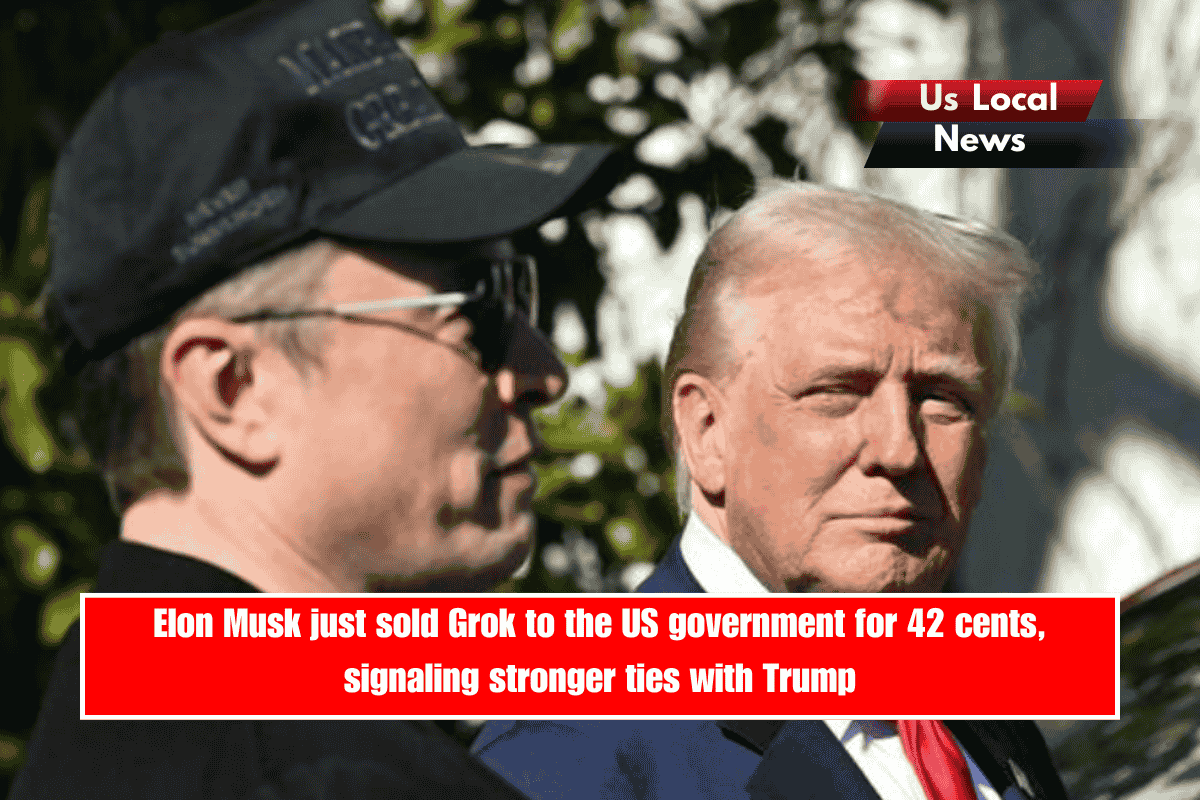We recently hosted a large gathering of top CEOs, mostly Republicans, and you might be surprised by what we heard. While many of them have been willing to support the president out of patriotism—and dissatisfaction with some Democratic policies—they are increasingly wondering who stands to benefit from the maelstrom of chaos, fear, and confusion that he has purposefully created.
The Yale Chief Executive Leadership Institute’s CEO forum brings together top political leaders and Fortune 500 CEOs for a Chatham House rules discussion in which direct quotes are not permitted. Senators from both parties, as well as some top Trump administration officials, joined us in Washington DC this week for the 155th gathering, as clouds swirled around the Capitol building just steps away. They had to face the nearly unanimous verdict of over 100 top business leaders representing some of the world’s largest corporations and most recognizable brands: Trump’s policies aren’t working. By the way, these opinions were all about business results: the reasoning was always based on the bottom line, regardless of personal politics or industry sector.
Business leaders at our forum are concerned that Trump is undermining an economic system that took decades to develop and has long benefited the United States more than any other country, both under Republican and Democratic administrations, all for short-term gain. They see the current situation as a deterioration of the United States’ economic foundations and institutions. In this free-to-speak environment (a loaded topic these days), they stated that while they support returning manufacturing to the United States and strengthening economic and national security, they are concerned about America’s international standing in light of the FBI, CIA, and Pentagon’s degradation of national security.
This widespread sentiment runs directly counter to the heavily publicized “Dear Leader” tributes of a small number of tech titans, who are clearly not representative of the leadership class.
Survey says
Two-thirds of the CEOs polled at our event said that US tariffs have harmed their businesses. They estimate that domestic firms and US consumers have shared 80% of the tariffs, with foreign counterparts shouldering the rest. Businesses have attempted to limit the cost of tariffs by rerouting supply chains, reworking operations, suspending hiring, or implementing large-scale layoffs. However, their options are limited as inventories accumulated prior to the tariffs’ implementation continue to deplete.
One CEO of a major US manufacturing company told the group, “If the US government wants to help protect certain industries, it must help those industries succeed. It is not as simple as imposing tariffs and expecting industries to relocate to the United States. Incentives must be provided. Customers prefer low-cost products. Items include power and hand tools, clothing, and sneakers. Does it make sense to manufacture all of this in the United States? I don’t believe it does. While some industries may benefit from manufacturing in the US, it is unrealistic to expect all industries to do so.
The CEOs of Gap, Ford, Stanley Black & Decker, Nike, Conagra, Procter & Gamble, Home Depot, Best Buy, Macy’s, Target, and Walmart are just a few of the many who have expressed similar concerns in recent public statements. This is an excellent opportunity for the Business Roundtable to advocate for its members in a strong, direct challenge to the administration, but it has been mysteriously muffled. As expected, inflation has risen, reversing the downward trend that Trump inherited from the Biden administration, and the labor market remains weak.
Unfortunately, rebuilding at home does not appear to be the solution Trump was hoping for. Fewer than half of CEOs reported increasing investments in domestic manufacturing and other infrastructure since “Liberation Day,” and even fewer expected significant returns on their capital investments.
Why everything is frozen in the Trump 2.0 economy
Then there’s the uncertainty that hangs over everyone’s business during Trump’s second term, which is why CEOs have said they’re watching and waiting. The same day, Federal Reserve Chairman Jerome Powell described the labor market’s “low firing, low hiring environment” across town. We could’ve told him why.
As we saw during the first Trump administration, there is also the larger question of whether major capital investment announcements are truly new, or if they are old plans repackaged to appease a demanding president. Previous examples of widely publicized manufacturing investments that failed include the failed $10 billion Foxconn factory in Wisconsin. And, while the president may continue to hold star-studded events to celebrate the alleged hundreds of billions of dollars being invested in the United States as a result of his efforts, the validity of some of those commitments has been questioned. Other pledges are again experiencing indefinite delays.
CEOs at our event shared stories about similar quandaries. A well-known business leader with a significant manufacturing footprint in the United States and abroad told the group that, while they want a level playing field and support the president’s goals in this regard, their company can only offset some of the tariff-related cost increases through operating efficiencies and tax breaks from the recently passed “One Big Beautiful Bill.” They went on to say that, for the time being, the cost of tariffs still far outweighs the benefits provided by the Trump administration, prompting murmurs of agreement in the room.
Just as frustrating for CEOs is the persistent fear that the entire house of cards will collapse at any time due to a court reversal. Almost three-quarters of all executives polled agreed that the courts were correct in ruling that Trump’s tariffs are illegal as implemented. If the Supreme Court agrees with those business leaders, corporate America’s plans will be thrown into disarray once more, creating halting uncertainty.
Another leading CEO in the manufacturing sector, whose products are primarily made in America, explained how crippling such uncertainty is for their company: “Manufacturing has always been a big advantage for America. So, I believe that reviving manufacturing is critical. The administration has it right. We need a level playing field in the US. But I’m always worried about what the government will do next. Tariffs appear to have eased, but manufacturers still import from Mexico, Canada, and China. None of those [trade agreements] are finalized. So, if you want to make a change in your business, you know tariffs will change in 90 or 120 days. And I don’t want to look foolish! So I’ll hold back.”
The group’s worries extended beyond their business operations. More than three-quarters believe Trump is not acting in America’s best interests by pressuring Jerome Powell to lower interest rates. The majority believe the president has done long-term damage to the Federal Reserve’s independence, with more than 60% blaming his recent politicization.
The head of a major U.S. multinational investment bank expressed confusion about the administration’s pursuit of an America-first agenda while attacking the Fed’s independence: “If you look at all the things that the President and this administration are doing, all of them are in service of keeping the US dollar as the world’s reserve currency…” The only thing I haven’t been able to reconcile with this administration is the attack on Fed independence. That is such an important part of ensuring that the US dollar remains the world’s reserve currency, because people believe that the Fed’s independence is the only area beyond presidential influence.”
Credit where it’s due
The CEO forum was not completely pessimistic. The CEOs want to see a prosperous America, and they were quick to congratulate President Trump when his actions yielded tangible results. Last week, on CNBC’s Mad Money with Jim Cramer, Apple CEO Tim Cook and Corning CEO Wendell Weeks credited Trump with encouraging their $2.5 billion Kentucky partnership. A similar sentiment was expressed at our event.
CEOs told us they still believe in the promise of the United States and its capitalist system, but it’s difficult to ignore the Trump administration’s shift toward quasi-socialist statism, seizing ownership from private shareholders, dictating staffing, and selectively blocking moves into strategic markets based on politics and kickbacks. Nearly three-quarters of CEOs polled said they were confident that the United States’ free-market capitalism could compete with China’s socialist market economy in the global AI race, and they expressed near-unanimous dissatisfaction with the Trump administration’s departure from the capitalist model.
The gathered CEOs strongly opposed the president’s recent market interventions, which included taking equity stakes in Intel and MP Materials, requiring a revenue sharing agreement for approval of Nvidia’s and AMD’s China-sourced revenues, and mandating a golden share for authorization of the Nippon Steel takeover of a failing U.S. Steel, believing that his actions were more akin to those of China than the America envisioned in “Make America Great Again.”
Such flirtation with state-driven capitalism and protectionism not only increases uncertainty for CEOs, who are fearful of what will happen next, but it also gives China an opening with their suppliers and customers. At our March CEO forum, 85% of business leaders saw US government uncertainty as a competitive opportunity for China. They stated this week that it has proven true over the last six months.
Similarly, in March, we questioned whether the US-Russia-Ukraine peace talks taking place that week in Saudi Arabia would result in a peace agreement. Almost three-quarters predicted that would occur within six months. Regrettably, more than three-quarters of CEOs believe relations with Russia and Ukraine have deteriorated since Trump took office. A similar proportion of executives believe we are at risk of losing the momentum gained in the Middle East by the Abraham Accords.
The CEO’s dissatisfaction with foreign relations and economic issues is consistent with overall opinion polling. From Ipsos, Gallup, and the Associated Press to Emerson College, Quinnipiac University, and Morning Consult, each data set conveys a clear message: America strongly opposes President Trump’s leadership. His approval ratings are lower than those of any president at this point in their term since George W. Bush.
After nine months in office, there is a clear desire to restore respect for the balance of powers in government, to strengthen international allies, to strengthen independent, objective expertise of economists and scientists, to encourage freedom of speech, and to stop bullying countries, cities, and businesses into resentful, uneconomical deals. In a nutshell, CEOs want to make America great again.
When one commenter compared MAGA to the Maoist movement, there was no outcry of opposition. Quite the opposite.









